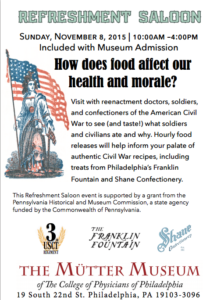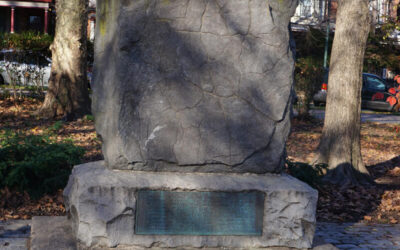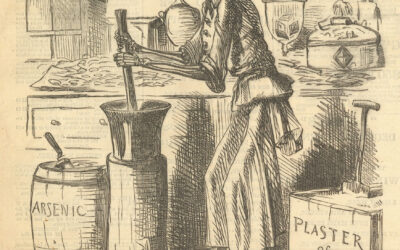The Mütter Museum Shares a Taste of the Civil War
By Emily Yates, Special Assistant to the Museum Director Mütter Museum
The Mütter Museum will host a Civil War food event on Sunday November 8, 2015 from 10 am – 4 pm. Come to the Refreshment Saloon to taste authentic recipes like Tryphena Fox’s Louisiana Pumpkin Preserves from William C. Davis’ A Taste for War (recipe below). All recipes will be accompanied by historical interpretation by Becky Diamond (author of The Thousand Dollar Dinner) to bring insight into how these foods affected the health and morale of soldiers and civilians.

The Mütter Museum is located at 19 S. 22nd Street Philadelphia, PA. For more information about the Refreshment Saloon event visit: http://muttermuseum.org/events/refreshment-saloon
Tryphena Fox’s Louisiana Pumpkin Preserves
Clean and cut up a medium-size pumpkin and boil in water for 3 hours or until soft. Make a thin syrup of 2 cups of sugar and 4 cups of water, and bring to a boil. Place the cooked pumpkin in it, and continue to boil occasionally skimming the top until scum no longer rises and the pumpkin is very tender. Remove and skin the pumpkin, cutting it into 1 inch cubes. Meanwhile, boil the syrup until it is reduced and thick. Place the pumpkin cubes in a crock or canning jar, add a little vanilla or lemon extract to the syrup, and pour the hot syrup over the pumpkin, sealing the container. Serve hot or cold.
-A Taste for War by William C. Davis
……………………………………………………………………………………
In the mid-nineteenth century, the availability of fresh fruits and vegetables was dictated by the changing seasons. The obstacles created by the Civil War made it doubly difficult for soldiers to obtain garden-quality produce. Sweet preserves were a tasty and portable way to give soldiers some variety in their diet. When sugar became scarce in the Confederacy, sorghum became the primary replacement for sugar. Introduced into the South during the 1850s, sorghum stalks were crushed to extract a sweet juice that was boiled down to a molasses-like consistency and used to make jelly or preserves and baked into cakes and pies.
Pumpkin was grown successfully in both the northern and southern states. Southern “matrons” used both melon and pumpkin to make preserves. During the war, many fruits that were typically dried for use as winter provisions for the troops were instead converted into brandy, making dried fruit harder to come by. Pumpkin became an excellent substitute, and was helpful in treating and preventing diarrhea and scurvy.
In the North, pumpkin preserves were often called pumpkin marmalade. Preserves were also made out of pumpkin chips, a uniquely American sweet. Uncooked pumpkin was cut into strips or slices and simmered in sugar syrup flavored with lemon until translucent, then dried. It could be eaten like candy or used to make preserves, as evidenced by one Civil War soldier’s diary which states, “We were forever supplied with preserve made of pumpkin chips.” Another useful resource from the colorful squash was its seeds. The oil from pumpkin seeds was used to make a “cooling and nutritive milk” and was also considered a diuretic.
-Becky Diamond, author of The Thousand Dollar Dinner




0 Comments